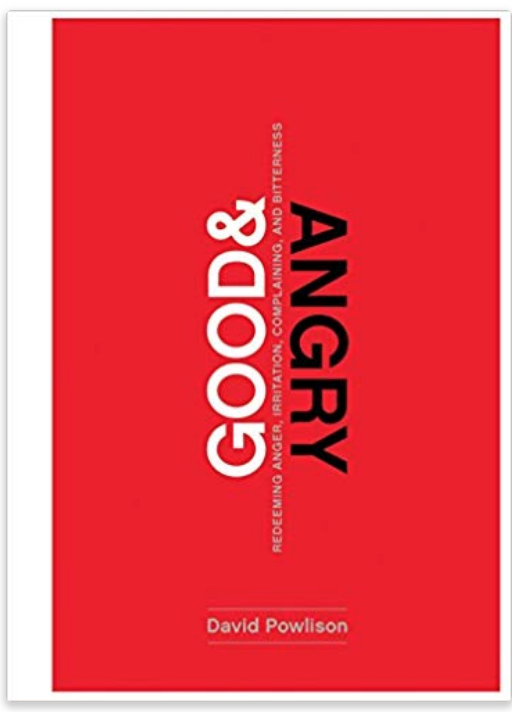Good and Angry; Redeeming Anger, Irritation, Complaining, and Bitterness
How do you please the Lord and live your Christian life in the midst of anger, irritation, complaining, and bitterness? It might be your own anger and irritation, or it might be someone else’s. But we all have dealt with and are dealing with anger in our lives in one way or another; none of us is immune.

I certainly have expressed unrighteous anger or had angry thoughts many, many times in my own life. The challenge for our own hearts is to bring glory to God in how we deal with our anger. These are the topics addressed by Good and Angry by David Powlison in what I think is the best and deepest book on anger I’ve read.
In the first section of the book he takes on our own experience with the bad, sinful, and destructive anger we most often associate with the word. Powlison contends we all have a serious problem with anger, but many of us won’t admit it.
Powlison notes “the sweet paradox of how God works. He blesses those who admit they need help. The poor in spirit are blessed (Matthew 5:3)” Acknowledging anger in our lives is the first step in dealing with our sin and growing in Christlikeness.
Powlison acknowledges there can be both, good and righteous anger as well as sinful, bad, and destructive anger. He defines all anger, either good or bad, this way: “Anger is about displeasure . . . We care, and we take the stance of critic, judge, activist, enemy, and plaintiff: I disapprove. That’s wrong. I feel offended. I want either to make it right or get rid of it.”
He says every incident of anger has three things in common.
- I identify some perceived wrong.
- I take a stance of disapproval and feel displeasure.
- In some way I’m moved to action – to say or do something about it.
Powlison says our anger is rooted in the fact we are created in the image of God and as such God has placed within each human heart an understanding of right and wrong; of righteousness and sin. That’s why when we perceive something is wrong, we want to do something about it.
That’s why when we see a crime committed against someone we want justice to be done. It’s why if we see a young boy being bullied by older boys we step in to protect the young man and stop it. These are examples of good, righteous and constructive anger.
The spiritual challenge for our hearts according to Powlison is to respond to perceived wrongs and the anger it generates within us, with a good, constructive, and edifying response rooted in the mercy that has been shown to us through Jesus Christ, and the gospel.
The key for us is to respond to perceived wrongs with patience, forgiveness, and love, rather than being irritated, arguing, being bitter, self-righteous, imposing the silent treatment, or becoming emotionally or physically abusive or violent.
Responding in love according to Powlison involves dealing with conflict constructively by acknowledging that you don’t like something, but at the same time remembering that you care about the person involved and choosing to respond in constructive love, rather than destructive anger.
The second half of the book is involved with how to make that change happen with the power of the Spirit of God using the knowledge of the gospel of Christ to drive that change in our hearts.
I highly recommend this book. Powlison uses biblical truth to drive change in our lives, to bring about Christlikeness in us, and to have us strive to walk in a manner worthy of the gospel. I have grown by reading this book and I’m sure you will too.
More in Monthly Newsletter
May 1, 2024
The Christian Ethic of Joy and SufferingMay 1, 2024
Elders ReportMay 1, 2024
Deacons Report